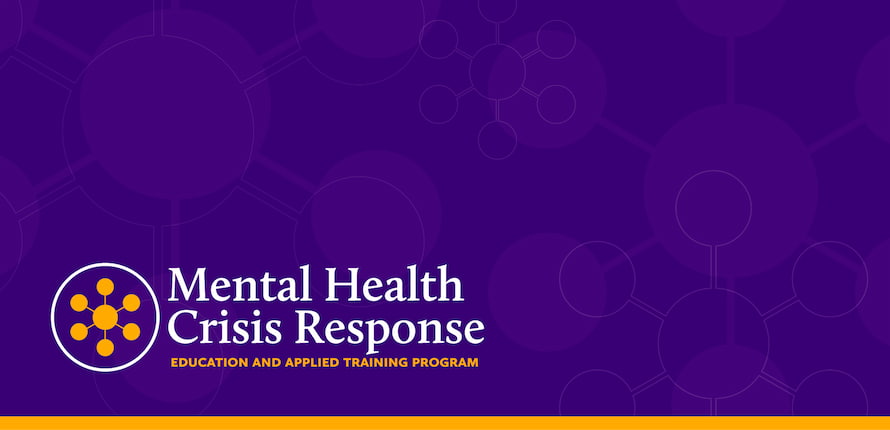We use cookies on this site to enhance your experience.
By selecting “Accept” and continuing to use this website, you consent to the use of cookies.
Search for academic programs, residence, tours and events and more.

The Mental Health Crisis Response (MHCR) program is a scenario-based, community co-designed curriculum that provides frontline officers with advanced, evidence-informed training in de-escalation, crisis communication, and relational policing. Developed over an eight-year period through rigorous research and real-world testing, MHCR equips public safety professionals with the skills to respond effectively, empathetically, and safely to individuals experiencing a mental health or substance use crisis.
Anchored in the validated DePICT™ framework, our program cultivates a relational policing approach—centered on dignity, procedural justice, and trauma-informed practice—that fosters trust and resilience within communities.
As of April 1, 2024, the MHCR program is mandatory training for all police officers in Ontario under the Community Safety and Policing Act (CSPA).
To be compliant, MHCR training must be delivered by a certified instructor who has completed the MHCR Train-the-Trainer (T3) program through Wilfrid Laurier University.
Complete the MHCR form to receive updates on training opportunities, webinars, pricing, and program materials.
The MHCR curriculum was developed through a collaborative, cross-sectoral process involving:
This inclusive design ensures that MHCR is not only practical but also socially responsive, trauma-informed, and rooted in real-world perspectives.
MHCR is grounded in a relational policing approach, which prioritizes respectful, personalized, and trust-based engagement during crisis situations. Officers are trained to slow down, listen actively, and co-create peaceful resolutions with individuals in distress—while ensuring public and personal safety.
Key principles of relational policing include:
This approach supports long-term community trust, officer wellness, and improved outcomes for individuals in crisis.
While MHCR was developed and piloted in Canada, the program’s flexible, modular design makes it applicable to a wide range of jurisdictions and public safety organizations globally. It can be tailored to reflect local policies, protocols, and cultural considerations, and is aligned with international best practices in crisis intervention and police education.
MHCR is ideal for:
MHCR is more than a training course—it’s a transformational approach to crisis response. It offers organizations a comprehensive framework to:
Interested in the MHCR training for your organization? Fill in this MHCR survey to help us understand your needs. Would you like a copy of the DePICT tool? Fill in the DePICT Request Form and we will email you the tool and manual.
Contact Us:
For assistance with implementation, instructor certification or scheduling:
E: mhcr@wlu.ca